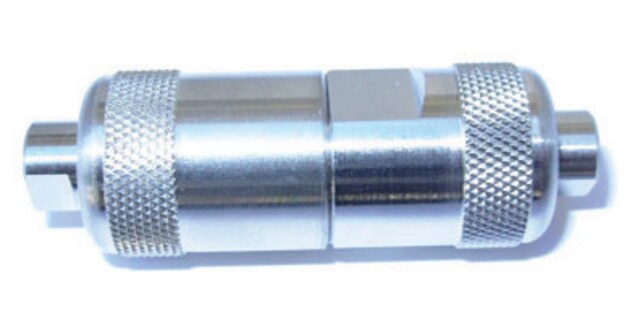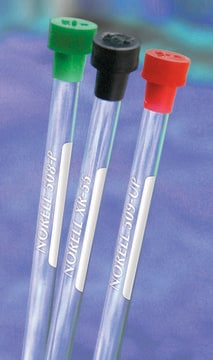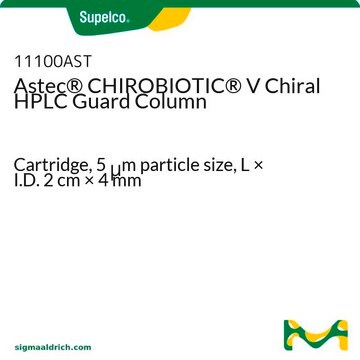11020AST
Astec® CHIROBIOTIC® V Chiral (5 μm) HPLC Columns
L × I.D. 25 cm × 2.1 mm, HPLC Column
About This Item
Recommended Products
Product Name
Astec® CHIROBIOTIC® V Chiral HPLC Column, 5 μm particle size, L × I.D. 25 cm × 2.1 mm
material
stainless steel column
Quality Level
agency
suitable for USP L88
description
HPLC Column
product line
Astec®
packaging
pkg of 1 ea
manufacturer/tradename
Astec®
parameter
0-45 °C temperature
241 bar pressure (3500 psi)
technique(s)
HPLC: suitable
LC/MS: suitable
L × I.D.
25 cm × 2.1 mm
matrix
High-purity silica gel particle platform
fully porous particle
matrix active group
vancomycin phase
particle size
5 μm
pore size
100 Å
operating pH range
3.5-7.0
separation technique
chiral
Looking for similar products? Visit Product Comparison Guide
General description
- Bonded phase: Vancomycin
- Operating pH range: 3.5 - 7.0
- Particle diameter: 5, 10 or 16 μm
- Pore size: 100 Å (CHIROBIOTIC® V) or 200 Å (CHIROBIOTIC® V2)
Legal Information
Not finding the right product?
Try our Product Selector Tool.
Choose from one of the most recent versions:
Already Own This Product?
Find documentation for the products that you have recently purchased in the Document Library.
Our team of scientists has experience in all areas of research including Life Science, Material Science, Chemical Synthesis, Chromatography, Analytical and many others.
Contact Technical Service




